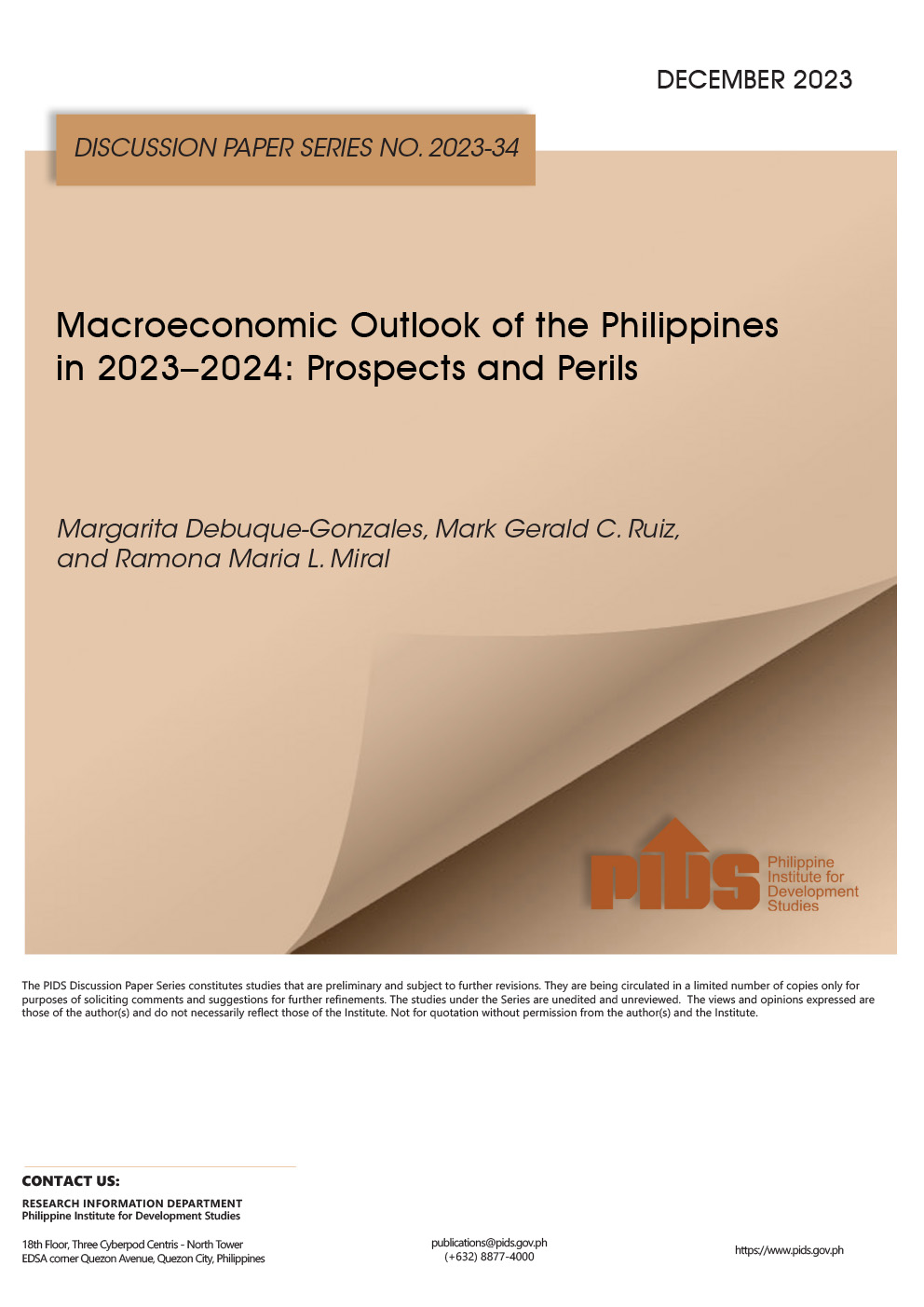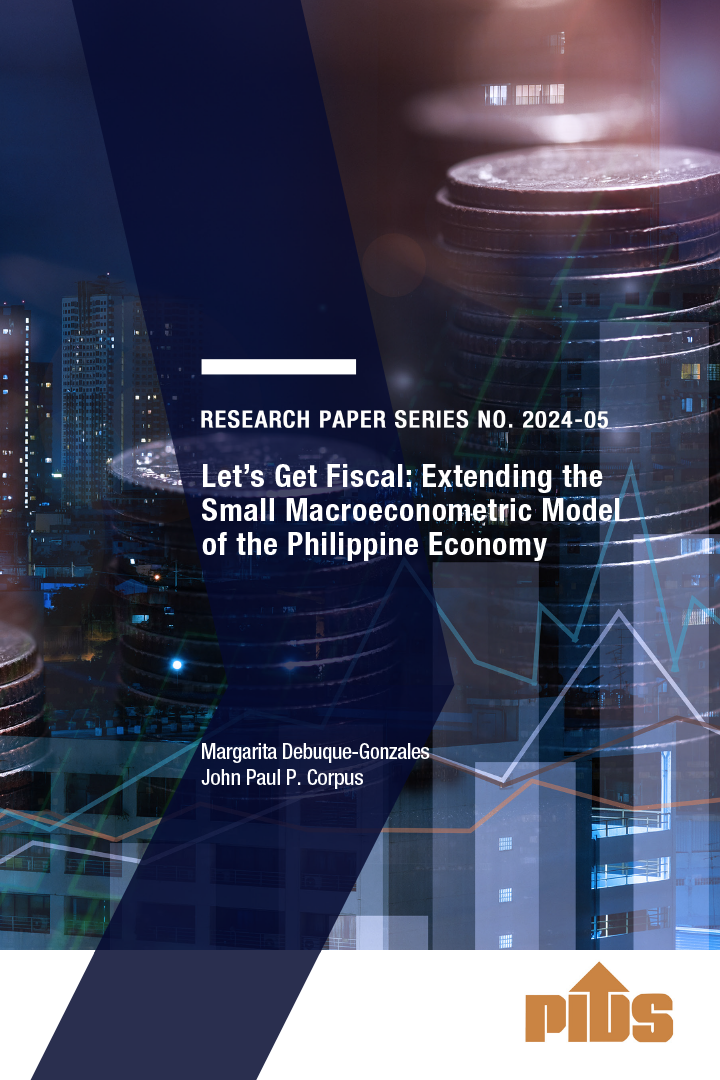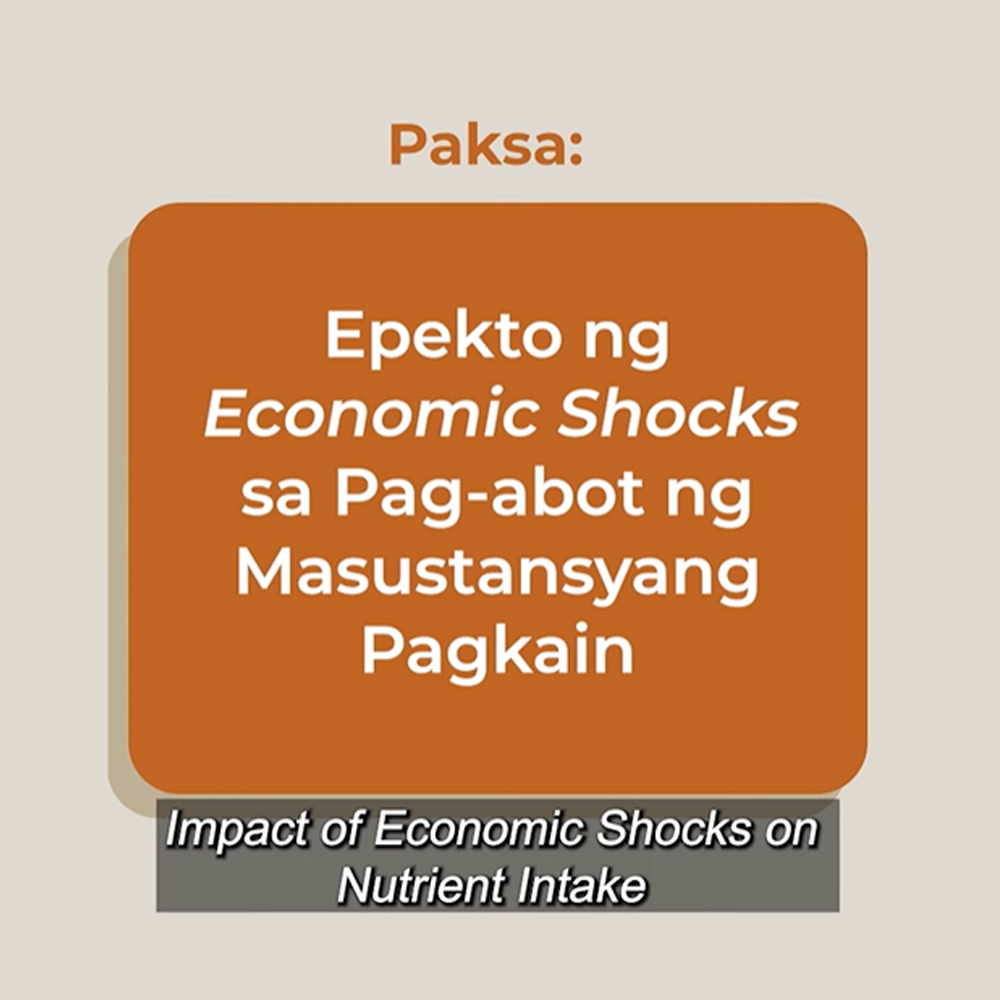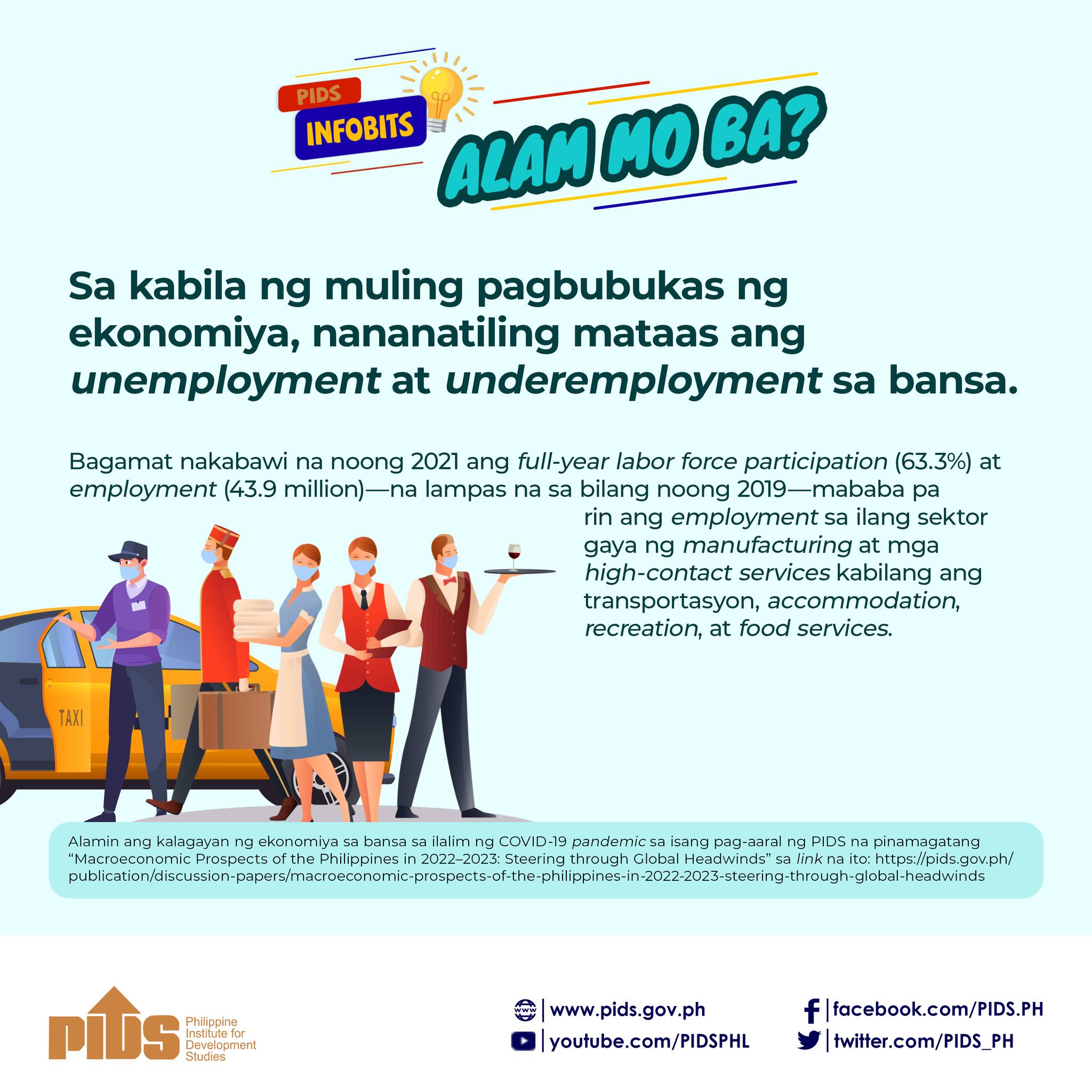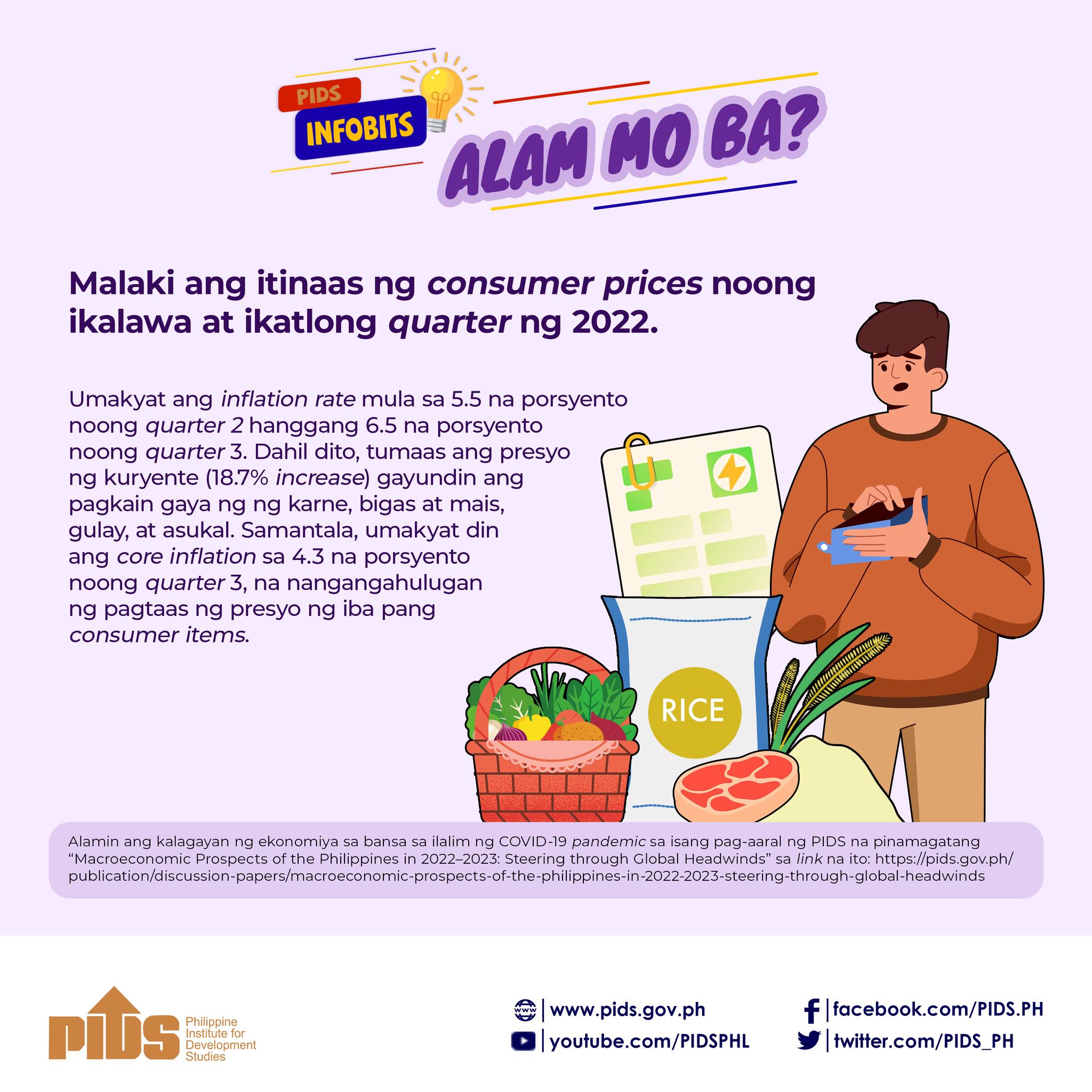
Bringing the Philippine economy back to its pre-pandemic growth path requires pursuing balanced macro management and new growth drivers while addressing pandemic scars amid the slowdown of major economies.
This was the recommendation of Philippine Institute for Development Studies (PIDS) Senior Research Fellow Margarita Debuque-Gonzales, Supervising Research Specialist John Paul Corpus, and Research Analyst Ramona Maria Miral in their study “Macroeconomic Prospects of the Philippines in 2022-2023: Steering through Global Headwinds” presented at a PIDS public webinar recently.
The study reviewed the Philippines’ macroeconomic performance from 2021 to 2022 and analyzed recent developments and challenges shaping the economy’s outlook in 2023.
It forecasted that the Philippine economy would grow from 4.5 to 5.5 percent this year, lower than the 7.6-percent growth in 2022.
The authors’ lower forecast is mainly due to decreased market demand, high inflation, risk aversion, and constrained policy space, which will adversely affect household spending and investment. They explained that the Philippines would “enter another period of rough sailing given global headwinds, where the new government’s commitment to its socioeconomic agenda will be tested”.
According to them, high domestic inflation, which reached 7.7 percent in the fourth quarter of 2022, is the country's immediate concern. Factors contributing to the soaring inflation include the depreciation of the peso, internal supply issues, rising global commodity and energy costs, and a decline in private investment and business appetite.
“High inflation tends to worsen poverty and income distribution. Taming rapid inflation is notoriously difficult and may be extremely costly,” the authors said.
To guide the economy through these difficulties, they suggested identifying supply-side solutions for taming inflation, including “structural reforms to expand supply, either by increasing productivity, removing supply constraints, or both”.
“[Expanding supply] would be through investments in better education and digital infrastructure. [Removing supply constraints] includes easing import restrictions for agriculture products that may face shortages. Such reforms should be implemented immediately,” they said.
The study noted that addressing inflation requires careful calibration of monetary policies along with measures such as building infrastructure for more efficient trade, supporting the poor and vulnerable, and investing in human capital.
The authors also recommend smoothing the exchange rate volatility to strengthen business confidence, as the increase in transaction costs will have a “negative effect on the growth of small open economies” in the long run.
They also proposed continuing the policy momentum on investments to increase the country’s competitiveness.
“The government should continue to remove impediments to foreign direct investment by addressing the country’s inadequate infrastructure, expensive power, slow internet connectivity, regulatory inconsistencies, and concerns about government corruption,” the authors added.
Watch the webinar at https://fb.watch/iKCdFafuA8 or https://youtu.be/aZaUKHS3efY.
For more videos of PIDS events, go to https://www.pids.gov.ph/videos. ###

